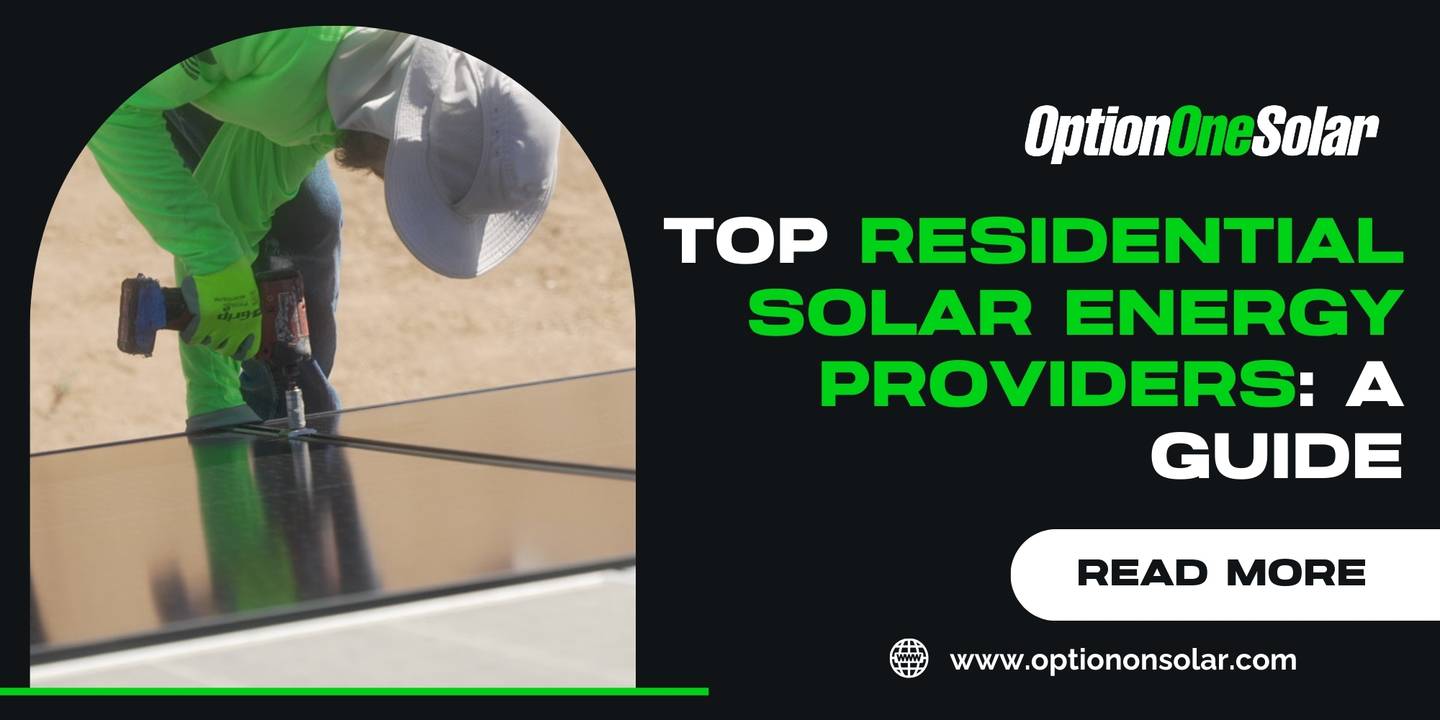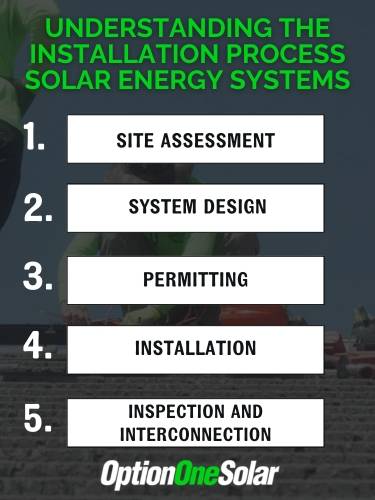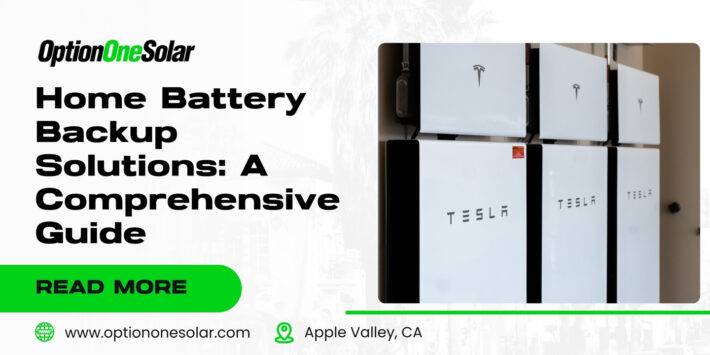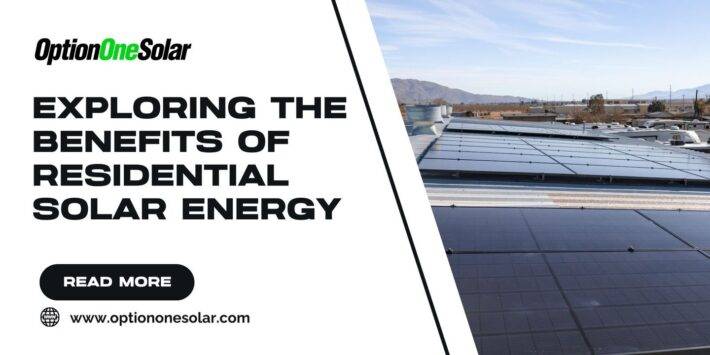Switching to solar power for your home can feel overwhelming. Residential solar energy providers offer many different options, from solar panel types to financing options.
Choosing the best residential solar energy providers means making sure they align with your needs, budget, and even your home's structure. It's crucial to go into this process informed.
Why Should You Consider Solar Panels?
Although the initial investment can seem substantial, the long-term savings on electricity bills can be noteworthy.
With solar incentives and rebates like the 30% federal solar tax credit that you apply for by including IRS Form 5695 with your tax returns, the transition becomes a bit easier.
Many find solar panels aesthetically pleasing, giving their home a modern, eco-conscious feel.
As our world becomes more concerned about environmental issues, it’s heartening to contribute in your own way. Did you know your solar panel installation could actually increase your property value?
A recent Zillow study indicates that homes equipped with solar energy systems sold for an average of $9,930 more than those without.
Understanding Your Energy Needs and Costs
Take a good look at your current energy bills to get a clear understanding of how much energy you're currently using. You should also understand how much you pay per kilowatt-hour (kWh).
This allows you to evaluate what size solar panel system will fit your needs and what the solar panel average cost will be.
This analysis is the first step toward understanding your potential cost savings through solar installation.
Evaluating Your Roof
Is your roof even suitable for sola energy solutions? Residential solar energy providers need a solid foundation.
Your roof should be structurally capable of carrying the weight of the panels.
The ideal roof is unshaded and south-facing. The slope also matters – aim for a roof with a 15-40 degree angle.
This angle allows your panels to capture sunlight most efficiently.
Exploring the NEM 3.0 Policy
California has historically been a forerunner in the solar energy movement.
However, with the implementation of the NEM 3.0 policy, selling excess solar power back to the grid results in substantially lower earnings.
It’s imperative to grasp how NEM 3.0 impacts potential savings calculations.
Your returns on generating excess power won't be as generous as under the old NEM 2.0.
You will also want to look into net metering and how that can impact your energy bills.
Looking for Residential Solar Energy Providers
The most crucial aspect is selecting a trustworthy and reputable solar installer.
With almost 2,500 California solar companies operating according to the Solar Energy Industry Association, choosing one can be a task.
Start with evaluating their credentials and certifications. Look for professionals with certifications from the North American Board of Certified Energy Practitioners (NABCEP).
Checking their Google and BBB reviews for feedback on customer experiences, pricing transparency, and quality of installations will also provide helpful insight.
You can also ask for customer reviews directly from the company.
Important Considerations Before Signing with Residential Solar Energy Providers
Comparing Multiple Quotes
Just like with any significant purchase, obtain quotes from at least three reputable residential solar energy providers to see how they compare.
Don’t solely focus on the overall cost, however.
You also need to take into consideration their warranty terms, maintenance plans, equipment brands they utilize, and their customer support ratings.
Consider looking at things like a solar lease, PPAs, or what the best payment options are for your individual needs.
For a free consultation on your solar energy needs, trust Option One Solar, the trusted solar installers with 50 years of experience in Apple Valley, CA.
Contract Details and Transparency
Always go over the contract to avoid getting hit with hidden costs.
Pay close attention to the payment schedules, warranty terms, potential penalties or fees, and cancellation clauses.
Ensure your installer has excellent customer service and detailed responsibilities regarding repairs and maintenance, solar panel systems monitoring, and overall system performance guarantees.
Navigating Solar Financing
Residential solar energy providers may offer various financing choices like direct purchases using cash, solar loans, leasing, or PPAs.
Directly purchasing means you own your solar system upfront and receive all tax credits. It may involve a sizable upfront payment.
This often represents the most beneficial method in the long run.
Although a more budget-friendly choice at the start, solar loans typically require monthly installments.
When you lease a solar panel system, you make consistent payments over the lease term (which is generally 20 years) without needing any initial costs.
Solar and battery packages are a combined package including the price of the solar panel system with the price of a battery.
Understanding the Installation Process Solar Energy Systems
Residential solar energy providers typically follow a series of steps that encompass everything from the initial assessment to activating your new solar power system. These may vary based on local permits or building codes.
- Site Assessment: The chosen installer visits your property to conduct a thorough assessment that covers factors like sun exposure, shading concerns, structural integrity, and roofing conditions.
- System Design: Post-site assessment, they propose a personalized solar panel system. This involves determining panel placements and any additional necessary components for interconnection.
- Permitting: You’ll then need permits and approvals from local authorities to legally install the system.
- Installation: Experienced professionals trained by your selected residential solar energy provider will handle the physical installation. It typically includes the mounting of panels, wiring, inverter setups, and any connection requirements.
- Inspection and Interconnection: Local officials inspect your newly installed solar system to ensure compliance with local codes and standards. Finally, your system is interconnected with the existing grid for power usage.
FAQs about Residential Solar Energy Providers
How does residential solar energy work?
Solar panels are mounted on your roof by a solar provider, where they transform sunlight into usable electricity. This energy can power your household, and any surplus can either be stored in a battery or sent back to the grid for credit.
What are the advantages of adding solar panels to my home?
- Lower energy costs: Over time, solar panels can lead to considerable savings on your electricity bills.
- Eco-friendly: Solar energy is a renewable and clean source of power, helping you reduce your environmental impact.
- Increased property value: Homes with solar equipment often sell for more than those without.
- Energy independence: Solar panels can give you greater control over your energy consumption and reduce your reliance on the grid.
How do I choose the right solar energy provider, such as Option One Solar?
When selecting a solar energy provider, consider the following factors:
- Experience and reputation: Look for a provider with a proven track record and positive customer reviews, like Option One Solar.
- Quality of equipment: Ensure the provider offers high-quality solar panels and inverters, as Option One Solar does.
- Warranty and guarantees: A reputable provider will offer comprehensive warranties and guarantees on their products and services, similar to Option One Solar.
- Financing options: Consider the different financing options available, such as loans, leases, or purchase agreements offered by Option One Solar.
- Customer service: Choose a residential solar energy providers that offers excellent customer service and support, like Option One Solar.
Finding Your Solar Match: A Guide for Homeowners
Choosing the right residential solar energy providers for your home involves several factors, but your energy journey can be smoother and more impactful with thorough research and planning.
With so many aspects to consider, always choose an option that fits both your energy efficiency and budgeting requirements, along with considering the long-term benefits.
Switch to cleaner, more affordable energy with Option One Solar, the best residential solar installer in Apple Valley, CA. Contact Option One Solar for your free consultation today!







